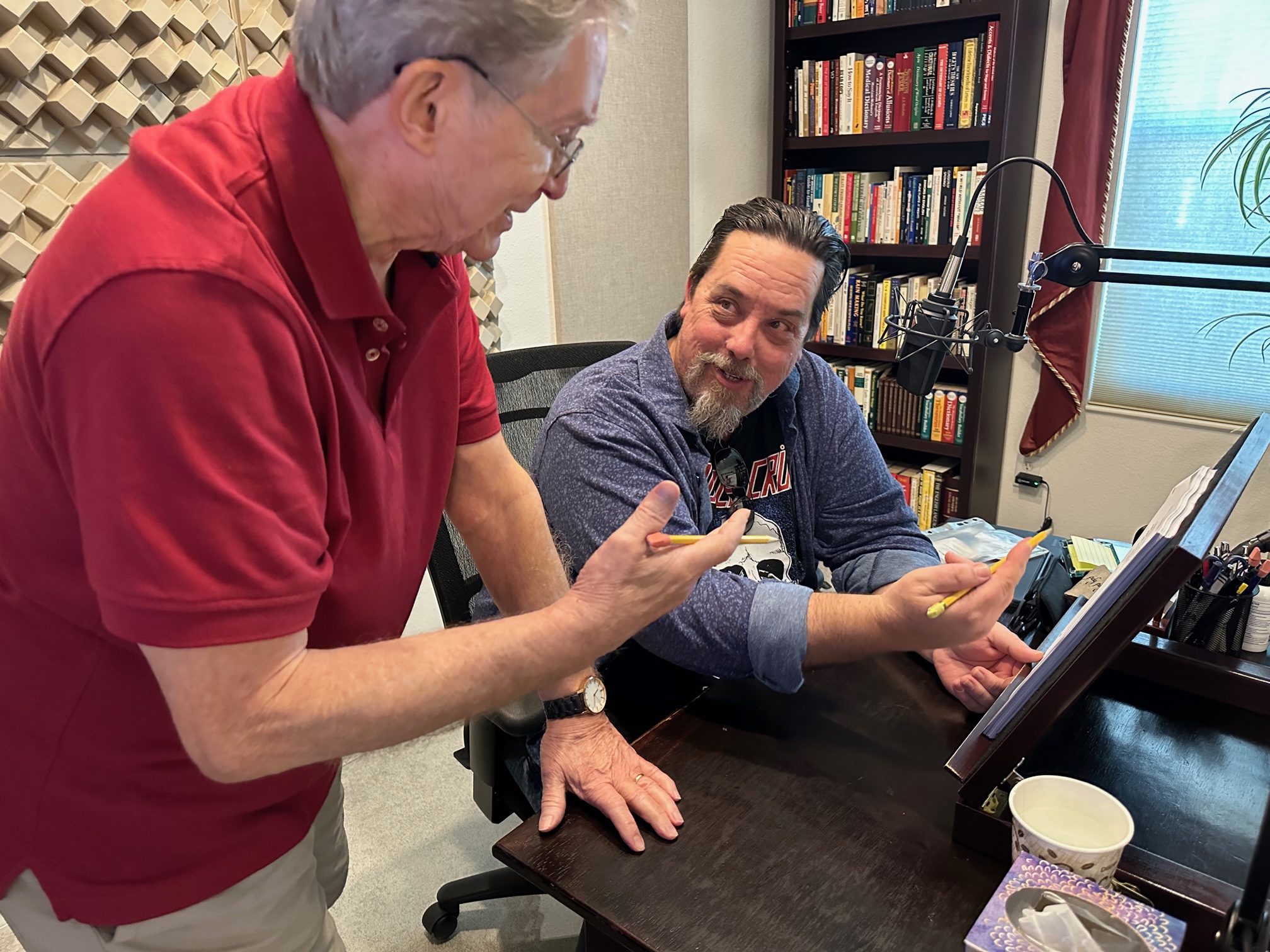
From Studio to Stage: How John Burr’s Production Background Creates Better Voice Actors
Breaking into the world of voice-over is about more than just having a “nice voice.”
Put your voice, acting, and interpretive ability to work with personalized coaching from one of the industry’s most skilled and experienced coaches.
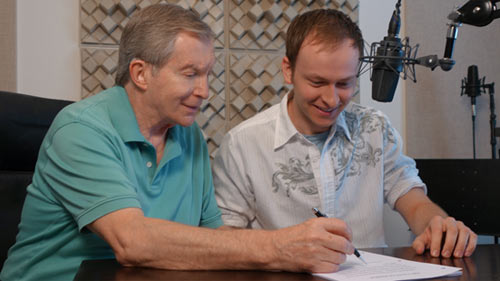
Becoming a first-rate voice-over artist takes commitment, patience, and expert voice-over training. Most voice acting classes fall short.
Why Voice Over Workshops Aren’t Enough
Many voice-over classes and VO training programs rush you from a brief workshop straight to voice-over demo production. The problem? Real voice acting proficiency requires mastering:
– Voice over pacing, timing, and breathing techniques
– Vocal inflection and character delivery
– Performance across commercial, narration, and character voice-over work
– English language
You can’t build professional voice acting skills in a weekend seminar.
Professional Voice Over Coaching Approach
Start with a 2-hour voice-over evaluation:
– Honest assessment of your voice acting ability and potential
– Clear, candid feedback on your VO skills
– A personalized voice-over training path forward
Then build real voice acting skills:
– One-on-one voice-over coaching tailored to your talent and ability
– Progressive voice acting development at your pace
– Professional voice-over demo production when you’re ready
Voice Over Career Success
Voice-over work is a rewarding career, but there are no shortcuts in voice acting. Don’t rush it. Ready for professional voice-over training? Let’s start with an honest voice acting consultation.
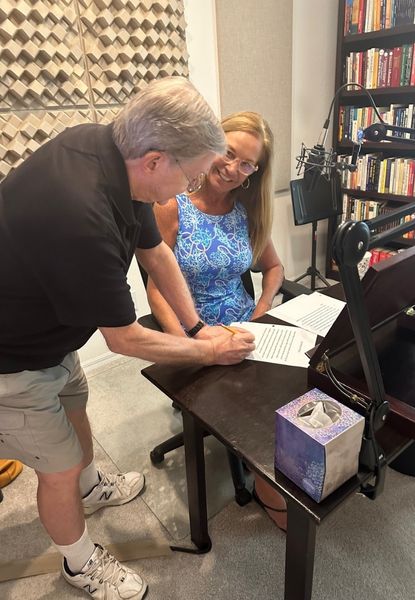
GET JOHN’S BOOK

130+ 5-star Amazon reviews!
Learn how to deliver a voice over script like a pro with the insightful learning tools provided in this in-depth voice over training book.
John developed this voice over book in response to a long-observed need for a more in-depth understanding of how English language fundamentals directly influence the analysis, interpretation and delivery of any script.
This is a book that gets to the heart of voice over performance!
“This really is the first practical and pragmatic treatment of voice over’s unique demands and approaches that I’ve seen. In particular the section that begins, ‘Why we read the way we do’, is not only spot-on, it should be required reading for anyone who wants to do or is already doing voice work…truly brilliant!”
– Harlan Hogan
Book highlights
• A complete guide to how the structure of the English language relates to the process of script interpretation.
• The only language dynamics related reference book in the industry.
• Explains from a grammatical perspective how and why certain words are emphasized and others not emphasized.
• Gives the reader new insights on reasoning the mood, meaning and purpose of a script.
• Accompanying the twenty-seven chapters are over two hundred fifty audio cuts that demonstrate nearly every concept presented in the book.
• With this guidebook, you will have a leg up on the competition, and a ready reference source available to you anytime!
Or get the book with the teaching materials when you sign up for coaching with John.

It is vital, in any voice acting coaching program, to make certain that the beginning voice over student takes with him or her a solid basic knowledge of marketing: how the industry works, where the business originates, the audition process, and the most efficient ways to approach the marketing process.
As a strong finish to the voice acting training program, we offer one of John’s most successful former students, Erica Cain, to work with students who have finished the voice over coaching stage and demo production to entering the workplace. Erica’s expertise in the industry nicely supplements the voice over training experience.
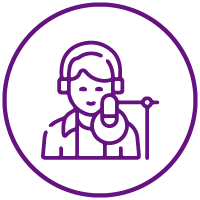
The best voice over coaches have a keen sense of when the student is sufficiently trained to begin work on the production of a demo, or several, depending on how many categories of voice over work the student is capable of performing. When that stage is reached, and work on the demo has begun, every effort is made by John as voice acting coach to put together demo montages that present the aspiring voice actor at his or her very best.
The demo is a dynamic calling card to use by the aspiring voice talent to send to a prospective client as an attachment to an email and/or an essential part of the talent’s website, as part of the marketing package.
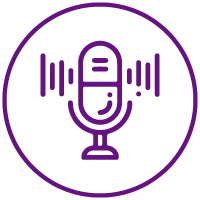
A significant element of the voice over training package is equipment and software. The quality of the microphone and electronics the student owns and utilizes are vital to the sound quality of his or her auditions and finished work. From the very beginning, concurrent with voice over coaching, the new voice actor must learn how to work with his equipment: on mic technique, editing, level control, tone control (equalization, or eq), and the software that generates these parameters. We have thoroughly researched the industry for new developments and techniques that yield the most outstanding results for a modest budget. We have been able to consistently come up with high-quality equipment packages that cost under 800.00.
A top-notch voice over coach begins with a thorough evaluation of the prospective student. This consists of a substantial variety of short versions of standard scripts that are common to the voice over marketplace. The voice Over coach then makes observatory notes about the reads performed by the student, particularly with regard to his or her response to coaching, imitative ability acting ability, sense of pitch, timing, pace, pause, and overall facility and understanding of the English language. If the outcome is positive, and the student decides to proceed with voice over training, the voice over coach will begin with one-on-one instruction and work in-depth with the student on the problem areas, as well as on enhancing what the student already does well. All lessons would be recorded. To give students the opportunity to hear where and why his or her performance succeeded or faltered, and to practice diligently on correcting the problem areas encountered in the lesson scripts.
A competent voice over coach will always know when a student is ready to make his or her demo(s) and begin auditioning in the marketplace.
The best voice over coaches will tell you that if you want to sound interesting, if you want to sound authentic, you must be totally immersed in the meaning of the script.
Most people read aloud to themselves. They don’t talk the script to a listener.
Be a storyteller, an instructor, a news reporter, a character—whoever the script suggests you should be. Act it out. In the words of the esteemed actress and coach Stella Adler, “Take the script and make it your own.”
Don’t be ordinary. No matter what the script is about, get into it. Make it special, as if it’s a vital part of your life.
Focus on the nouns. Nouns are images to the listener; they should be images to you.
Most importantly, finish almost every line as a statement. This is how people talk. Don’t read the phrases and sentences with tentative endings that have no sense of finality or purpose.
The best voice over coaches will teach you how to do this.
The most obvious group of people who can benefit from voice over coaching are those who have never had voice over coaching in any form, particularly one-on-one voice over coaching.
Many people begin training by enrolling in voice over online classes. These are very useful for picking up good tips via this method of online voice over training, but as a source of learning the fundamentals, as well as ferreting out and fixing bad habits they don’t do the job.
The only way to get better within a reasonable length of training time is to work with a voiceover coach who has evaluated your talents and abilities in depth and will work with you painstakingly to fix the problems that are holding you back and refine the areas in which you already excel.
My voice acting coaching program in entirely one-on-one.
Following the evaluation session that I require of all my students, the outcome of which has been positive, the student and I begin a regimen of one-on-one instruction.
The first lesson is longer (1½ hours), since there is much to discuss. I begin a discussion about the fundamentals of script delivery, always pointing out the vast differences between the ways most people read aloud vs. the ways people talk. This includes reading assignments for the next session and thereafter in my reference book, The Voice Over Handbook. I will also explain the basics of marking the script for emphasis and pauses.
We then move on to performing the scripts, one by one.</p.
Before we begin, I ask the student to tell me in one sentence what the script is about. Most of the time, in the early stages of voice acting training, the student cannot answer that question definitively.
Next, I let the student read through the entire script without interruption or critique. At the end of the read, I give the student some general critique about smooth or uneven delivery, and why I am hearing one or the other. In the next read of the script, my critique is more detailed, and I may stop frequently to go over the lines that need work, while defining problems and offering solutions as they occur. Finally, we go back and do another read to get the performance smoother and more natural. From there, we move on to the next script, and the process goes on, as before.
The student will take home the recording of the entire session to use in his or her practice time (or will have recorded it on Zoom, if the lesson was online).
Most of the week’s practice time will be spent on refining what has been critiqued in the lesson.
The day before the next lesson, the student will look over and mark, to the best of his or her ability, the scripts that will be read in the next lesson.
From then on, at the beginning of each lesson, before the student reads each script, we will go over his or her script markings and correct them, as necessary, and I will explain the how and why of the corrections.
Over time, in each of these voice over training sessions, a gradual understanding and mastery of the process will begin to emerge, and the student will be on the road to becoming an accomplished voice over actor.
In approximately the first 12 sessions, you will need to practice (ideally) an hour a day, and allow additional time for reading the assigned chapters in my book (usually three hours a week)
In the second set of lessons, I would stick to the 1 hour a day regimen. Depending on how difficult the areas that need corrective work are, you may need more than that.
If you are retired, you should have no problem practicing as recommended.
It should be noted that, given the time requirements of some jobs, not everyone is going to be able to practice an hour a day and do the extra reading on a regular basis. One does what one can in these circumstances. However, common sense tells us that if you are not able to keep reasonably close to this recommended practice time, you can expect the learning process to take longer.
You will need to buy a good USB microphone to record the lessons while you’re training. (40.00 to 75.00) which will be replaced around the time you enter the marketplace by a standard XLR microphone, as it is called, of studio quality (200.00 to 300.00). You will also need to purchase a good set of monitor speakers (160.00 to 375.00). Headphones won’t do the job, since they do not give you a comparative listening experience with what the producers for whom you will be working are listening to. I feel that it is paramount to buy the speakers as soon as possible, once the decision has been made to begin training, so that you will be working with a reference monitor system that will let you become accustomed to high-quality playback. You will also need to add an audio interface (100.00 to 170.00) to your finished system, which adds a studio-quality microphone preamplifier that will bring out the best from your mic. I will recommend the best gear in the price ranges previously stated.
Your total investment in equipment will be from 600.00 to 750.00, depending on what you choose to buy. (Add about 20.00 for speaker cables.) You will need this gear to do the work in the marketplace.
You will also need recording software, which can range from free on the internet to a monthly rental of 15.00 to 20.00.
The equipment and software I recommend is of very high quality for the money, and is well up to industry standards.

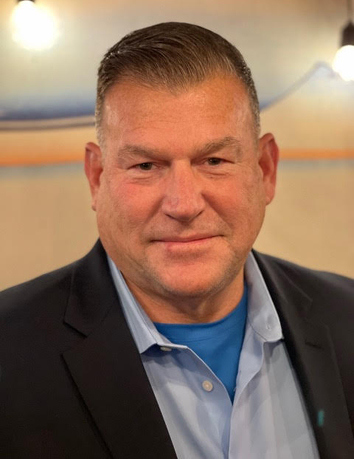
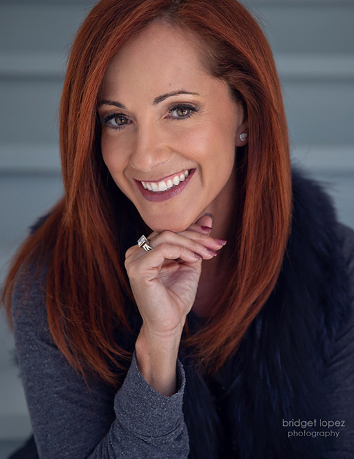
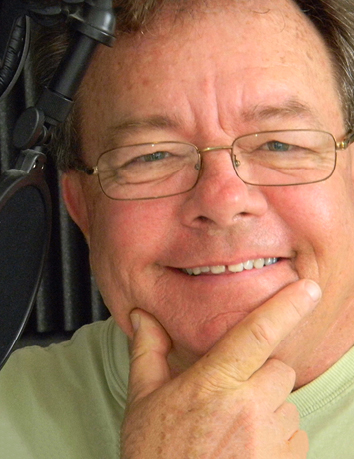

Breaking into the world of voice-over is about more than just having a “nice voice.”
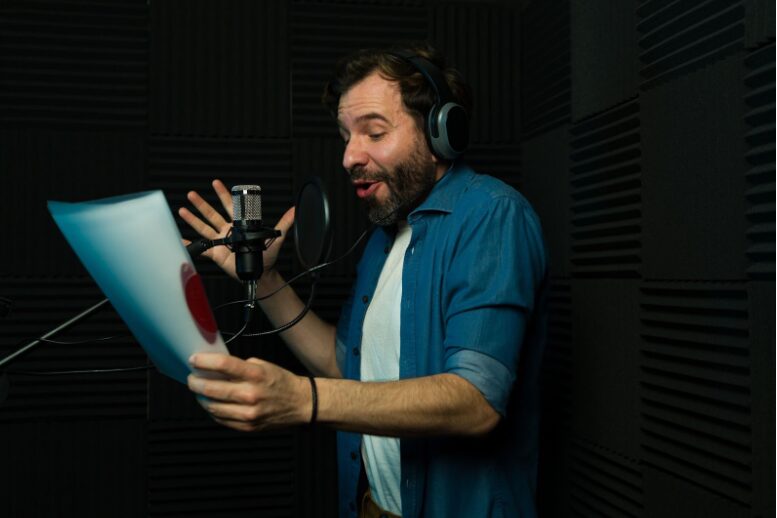
Improv may be best known for its place on comedy stages, but its value for
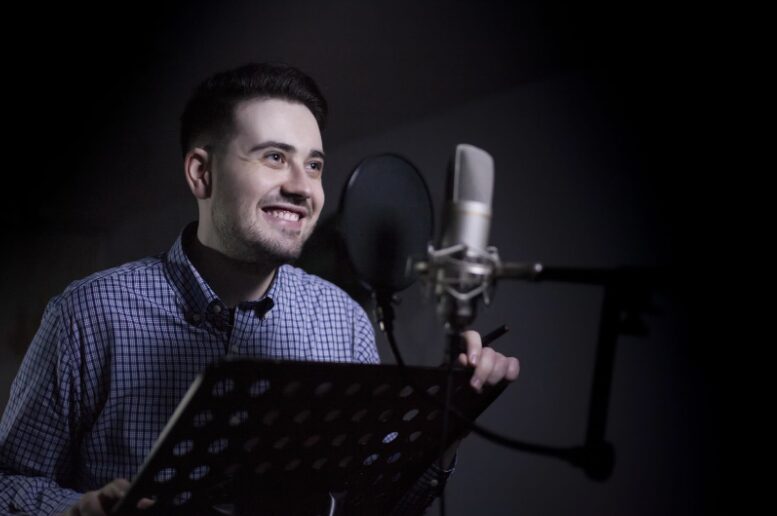
In voice acting, the voice is both the instrument and the performance. Every shift in
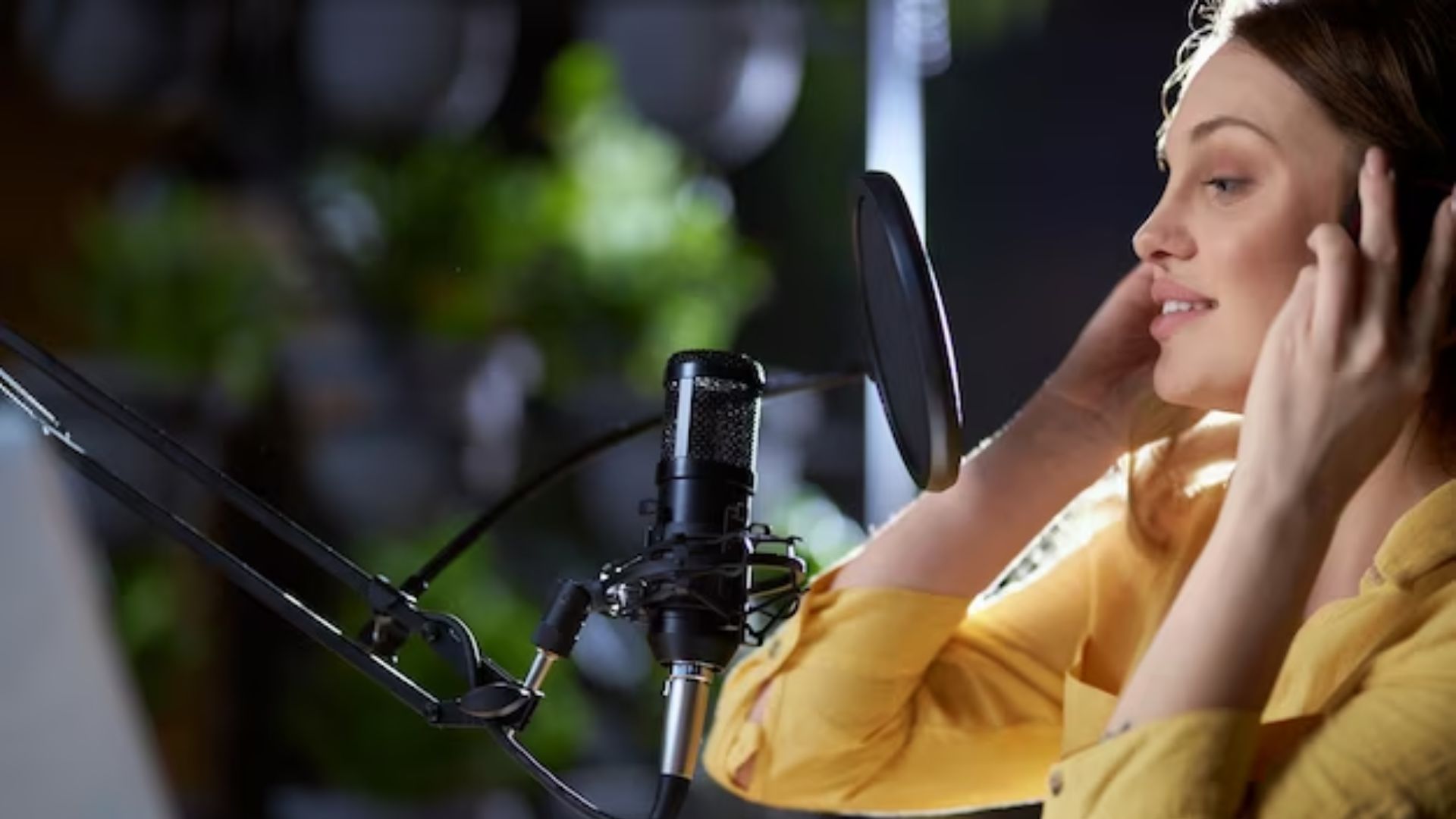
There are several habits you can develop that will help you take care of your
